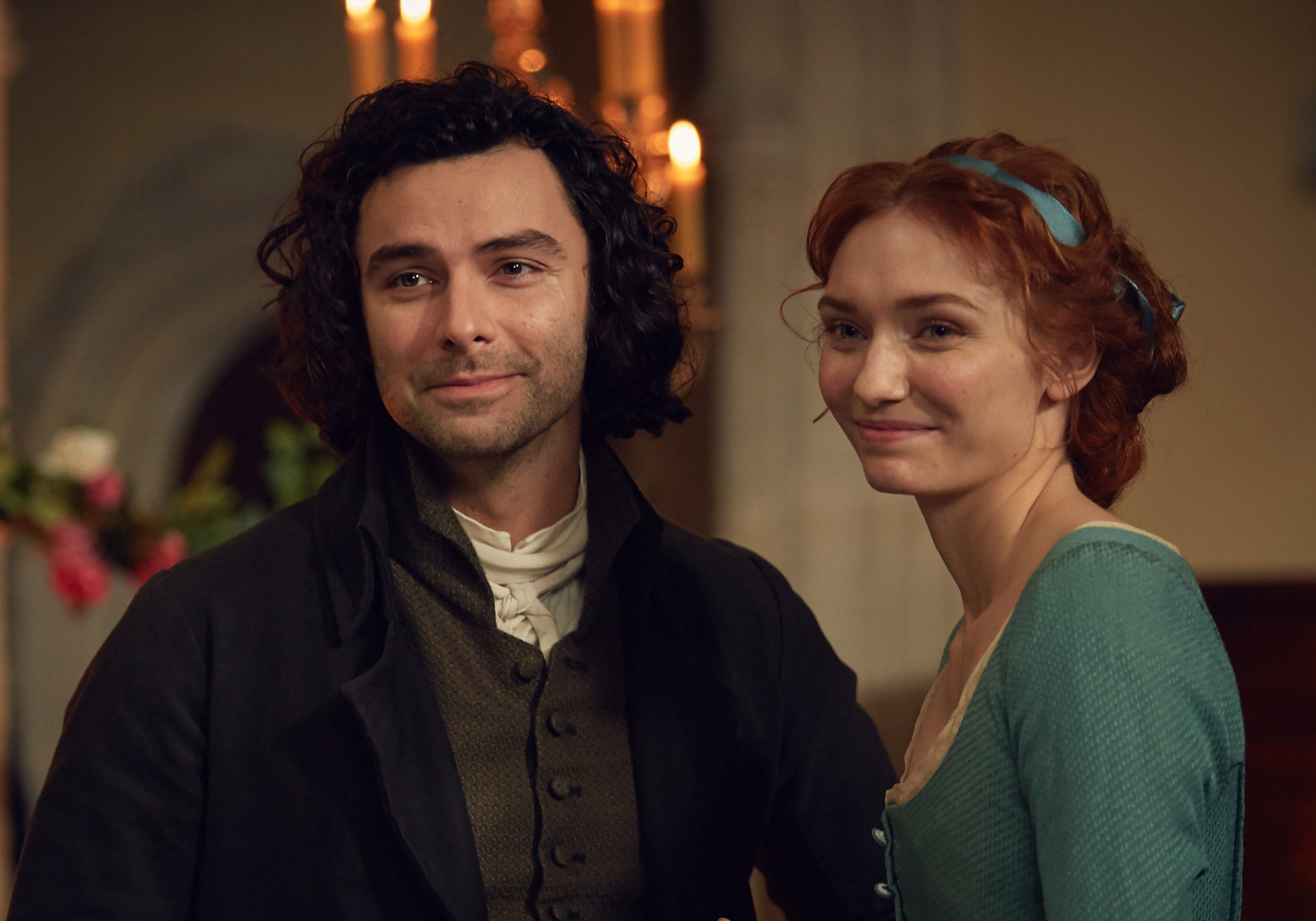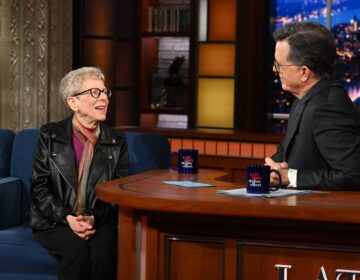That TV show you love so much doesn’t make you interesting

Still from season 3 of 'Poldark' (Mammoth Screen/ITV Studios Global Entertainment)
At a recent dinner party, I was seated next to a woman in her 70s, who, my hostess had told me, ran a successful business, was involved in both her synagogue and in local politics, and had enjoyed a long and happy marriage.
I was looking forward to hearing about her life, perhaps even receiving some accumulated wisdom. I’m in my 60s, and I figured I need all the help I can get to navigate the next decade. Plus, as a writer, I’m fascinated by life stories.
But all she wanted to talk about was “Poldark.”
“Poldark” is a British television series about Captain Ross Poldark, a redcoat who returns to Cornwall after the American Revolutionary War, only to find that his father is dead, his lands are in ruins, and his true love is about to marry someone else.
Ross Poldark is a fictional character, but my dinner companion spoke of him, with enthusiasm and at great length, as if he were real. She seemed intent on telling me, in detail, about everything that had happened on the show so far. (And the show had been running for several seasons.)
“I don’t care about ‘Poldark,’” I wanted to tell her. “And if I did, I could watch his show myself. Can’t we talk about something else?”
I’m guessing that she had stories to tell about herself that were just as interesting as whatever was happening to Ross Poldark — which, from what she was telling me, seemed to involve some kind of a love triangle.
I’d rather hear about her own love triangles! Or, if she didn’t have any, the secret of her enduring marriage.
“How do you pull that off?” I wanted to ask. “Was it all smooth sailing? How do the two of you deal with conflict? Did you ever want to leave?”
I tried. But she had no interest in talking about herself. Or in me. Every time I changed the topic, she managed to bring it right back to “Poldark.”
“So Demelza, for some reason, picks this moment to tell Poldark about her almost-adulterous adventure with Malcolm, so of course he gets angry and … ”
She’s not the first person I’ve met whose idea of conversation is telling you what just happened on their favorite TV show. I’ve never understood how this is supposed to be interesting.
I’m not saying that television can’t inspire good conversation. I’m a “Doctor Who” fan. I can talk forever about the show with a fellow Whovian. I once spent an hour on a train absorbed in conversation with a total stranger who’d spotted the “Doctor Who” t-shirt I was wearing and told me that she, too, was a fan.
We had a blast trading opinions about the Doctor, his companions, reversing the polarity, and traveling in time and space. Talking with another person about a show you both love can be great fun. It’s also a good way to get to know them.
But that’s different from someone telling you the plot of a show you’ve never watched.
The art of conversation, I fear, is kaput. Between people who think it’s perfectly okay to tippity-tap away on their smartphone as you talk to them, and folks who think meaningful discourse consists of yammering on about whatever TV show they happen to be binge-watching, it’s a wonder that anybody bothers.
Forget “Poldark.” If you’re ever seated next to me at a dinner party, instead of telling me about the latest episode of your favorite TV show? Think of the juiciest, most fascinating tale you’ve got to tell about your own life, then share that with me instead.
—
Disclosure: “Poldark” airs on PBS’ “Masterpiece” on WHYY and is available for members to watch online and via streaming services.
WHYY is your source for fact-based, in-depth journalism and information. As a nonprofit organization, we rely on financial support from readers like you. Please give today.




